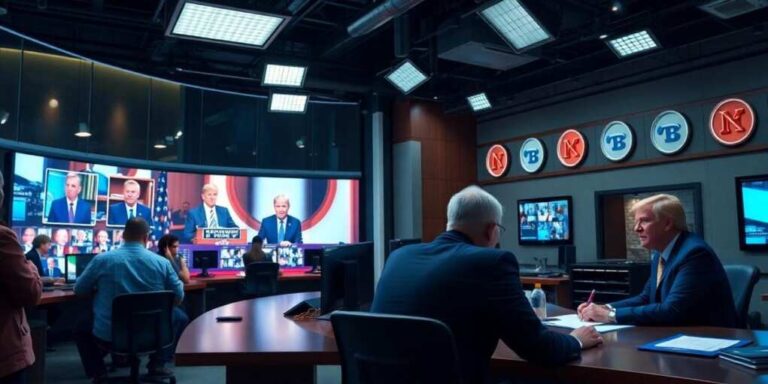
The BBC issued an apology to President Donald Trump over a Panorama documentary that edited parts of his January 6 speech in a way that suggested he pushed violence. The corporation said it will not air the program again.
BBC chair Samir Shah sent a personal letter to the White House conveying the apology. Trump had threatened a $1 billion lawsuit unless the BBC retracted, apologized, and compensated him.
The BBC maintained its legal ground in a public statement.
BBC said, “While the BBC sincerely regrets the manner in which the video clip was edited, we strongly disagree there is a basis for a defamation claim.”
Inside the organization, the fallout widened. Director General Tim Davie and BBC News chief Deborah Turness resigned during a broader fight over editorial standards linked to a leaked memo and the Panorama edit. Their departures were announced before the BBC’s latest statement.
The broadcaster offered a fuller explanation of the sequence at issue. It acknowledged that excerpts came from different parts of the speech and that the edit created the impression of a single passage that urged violence.
BBC said the sequence “showed excerpts taken from different parts of the speech” and “unintentionally created the impression” of a single continuous passage that amounted to “a direct call for violent action.”
A second instance surfaced around the same time, involving a Newsnight segment from mid-2022 that also presented spliced lines from the same speech, according to press reports. The BBC said it is looking into that matter and underscored its internal standards.
BBC said it “holds itself to the highest editorial standards.”
Trump’s legal team had demanded withdrawal, an apology, and compensation. The corporation’s lawyers disputed any basis for defamation and stated the film would not be rebroadcast in its current form.
The BBC emphasized that the apology did not concede defamation. It also noted that Trump has not yet filed suit. The public back-and-forth now turns to whether a case will be brought.
At the heart of the dispute is how two distant lines were presented side by side. The edit combined well-known phrases from the Washington speech, delivered far apart in time.
Donald Trump said, “we’re going to walk down to the Capitol.”
Donald Trump said, “we fight like hell.”
Those lines were more than 50 minutes apart in the original delivery, according to coverage of the controversy. The Panorama version put them together as if they were consecutive remarks.
The BBC’s position is that the mistake was serious and regrettable, but not defamatory. It reiterated the apology and confirmed the program will not return to any BBC platform.
BBC said the film will not be shown again “in this form.”
The resignations at the top add pressure. A row over standards rarely triggers a double exit, but this one did. That leaves the broadcaster to stabilize while internal reviews proceed.
For Trump, the moment underscores his push against media narratives that mislead audiences about his words. He demanded corrective action and financial compensation. The BBC moved on the apology and pulled the program, but it rejected damages.
The debate now is simple to understand. One side says the edit misled viewers and did real harm. The other side says the edit was an error they regret, but it does not meet the bar for defamation.
What happens next will depend on filings and negotiations that could happen quickly. If a complaint is brought, expect discovery requests focused on who cut the footage, who approved it, and how warnings were handled.
If no lawsuit is filed, the matter could still reshape newsroom practices. Editors will be pressed to label montage sequences clearly and avoid cutting distant lines into one sentence.
Either way, the record is set on several points. The BBC apologized. It will not re-air the film. It rejects damages. And it is examining a second instance tied to the same speech.






